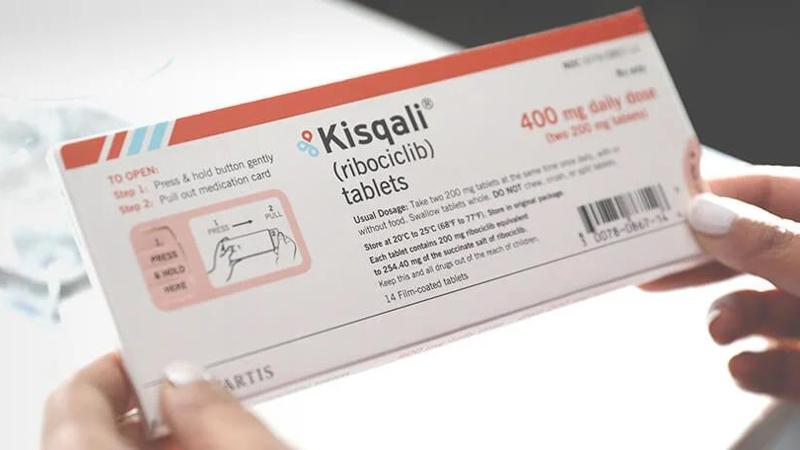Lilly on alert as new Kisqali approval threatens Verzenio

Novartis' CDK4/6 inhibitor Kisqali has claimed a broad FDA approval in early breast cancer that could give it an edge over class rival Verzenio from Eli Lilly.
The US regulator has cleared Kisqali (ribociclib) to reduce the risk of recurrence in patients with HR+/HER2- early breast cancer, based on the results of the NATALEE trial. In the study, Kisqali given alongside endocrine therapy as adjuvant therapy for stage 2 or 3 patients reduced their risk of recurrence by 25% compared to those on the endocrine therapy alone after three years.
Verzenio was approved for a similar adjuvant indication last year, having been used for a couple of years only in patients who tested positive for a specific biomarker. However, its label only covers the use of the drug in patients whose cancer has spread to the lymph nodes, while Kisqali can be used in both node-positive and node-negative cases.
Novartis' drug is the first direct rival to Verzenio in this setting, as Pfizer's CDK4/6 inhibitor blockbuster Ibrance (palbociclib) failed to show efficacy as adjuvant treatment for early breast cancer in the PALLAS and PENELOPE trials. That lack of competition has spurred Verzenio to sales of $3.86 billion in 2023, a 56% rise on the prior year, and it is now Lilly's third biggest seller.
At the just-concluded ESMO congress, Novartis presented new data from NATALEE showing that the risk of recurrence continued to fall after four years of patient follow-up, with a 28.5% difference between Kisqali and placebo in invasive disease-free survival (iDFS) and a trend towards improved overall survival (OS).
Kisqali has been approved by the FDA since 2017 as a treatment for metastatic HR+/HER2- metastatic breast cancer, and after a somewhat slow start has been gathering sales momentum, growing by 75% to just under $2.1 billion last year. Novartis has previously said the early breast cancer approval could help drive peak sales to $7 billion.
On the company's second-quarter results call, Novartis' chief executive Vas Narasimhan said that the drug was growing on the back of "an outstanding data profile in the metastatic breast cancer setting" and looks on track to become "the preferred medicine for patients with early breast cancer."
People with stage 2 or 3 HR+/HER2- early breast cancer face a significant risk of recurrence – often as incurable metastatic disease – despite adjuvant endocrine therapy. That applies to those with node-negative disease as well, as around 10% of this group will have a recurrence within three years of diagnosis.
"With this approval, we are redefining treatment options for a broader population of people impacted by breast cancer and facing the persistent risk of recurrence," said Victor Bultó, president of Novartis' US operations.












